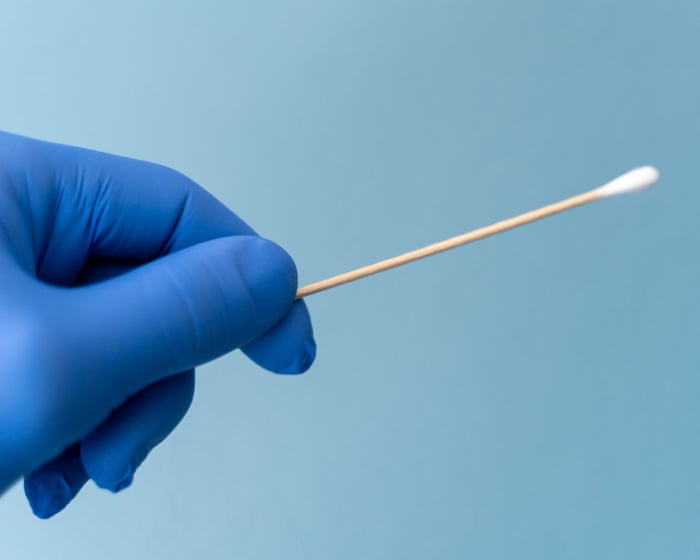A simple cheek swab test can detect a potentially fatal heart condition in children up to five years earlier than usual, according to new research.
Arrhythmogenic cardiomyopathy (ACM), which is often genetic, causes more than 10% of sudden cardiac deaths in children. The condition stems from abnormalities in the proteins between heart cells, affecting the heart’s structure and electrical activity. ACM can develop silently and strike without warning.
However, researchers have found that these same protein abnormalities can also be detected in the lining of the cheeks, offering a window into the heart’s condition. Doctors have now created a two-minute cheek swab test that can identify ACM up to five years before a child might otherwise be diagnosed.
The test was detailed at the European Society of Cardiology congress in Madrid, the world’s largest heart conference. Experts from Great Ormond Street Hospital and St George’s, University of London, tested 51 children between three months and 18 years old who had a known genetic risk of ACM. Over seven years, they received cheek swabs every three to six months. Ten of these children eventually developed ACM, and eight of them showed abnormalities in their cheek swabs before other tests detected the condition.
The team also studied 21 children with no known genetic risk, five of whom had abnormalities picked up by the swabs. The research showed that these changes could be spotted up to five years before diagnosis, which was later confirmed through scans and tests. Researchers suggest the swab could serve as an early screening tool.
Joanna Jager of St George’s, University of London, said, “There’s a real need for a quick and easy test to flag suspected ACM, which can then be confirmed by hospital tests.”
In the UK, an estimated one in 10,000 people has ACM. Symptoms may include heart palpitations, fainting, shortness of breath, irregular heart rhythms, and swelling in the stomach, legs, or ankles.
Researchers are now developing at-home swab kits, allowing families to collect samples and mail them for analysis.
Dr. Angeliki Asimaki, a researcher at St George’s, explained, “Our test offers a risk-free, non-invasive way to see microscopic changes in the heart. It has the potential to provide accurate, timely diagnosis and save lives. Children especially prefer the speed and ease of a cheek swab over blood tests.”
Dr. Sonya Babu-Narayan, clinical director of the British Heart Foundation, which funded the study, added, “ACM can develop without warning and risk sudden death in children, so early diagnosis is crucial. A simple, painless cheek swab could identify those who need closer monitoring or offer peace of mind to families with normal results.”
Frequently Asked Questions
Of course Here is a list of FAQs about a study finding a swab test can detect children at risk of a lifethreatening heart condition written in a natural and helpful tone
Beginner General Questions
1 What is this new swab test for
Its a simple mouth swab that can check a childs DNA to see if they have genes that put them at high risk for a serious heart condition called hypertrophic cardiomyopathy
2 What is hypertrophic cardiomyopathy
HCM is a condition where the heart muscle becomes abnormally thick This can make it harder for the heart to pump blood and sometimes causes sudden cardiac arrest especially in young athletes
3 Why is this test a big deal
Currently finding kids at risk often relies on spotting symptoms or doing expensive tests like an echocardiogram after a problem is suspected This swab could be a cheap easy way to screen healthylooking children before anything happens
4 Is this test available at my doctors office now
Not yet This is a finding from a recent study More research and clinical trials are needed before it becomes a standard screening tool that doctors can order
5 How does the test work
A nurse or doctor simply rubs a soft swab on the inside of the childs cheek to collect a DNA sample The sample is then sent to a lab to be analyzed for specific genetic markers linked to HCM
Advanced Detailed Questions
6 How accurate is this genetic swab test
No genetic test is 100 perfect It is very accurate at detecting the known genetic mutations that cause HCM However a negative result doesnt completely rule out risk as there may be unknown genes or other causes
7 What happens if my child tests positive
A positive result means they have a genetic marker for HCM They would be referred to a pediatric cardiologist for further testing to check their hearts actual structure and function They would then be monitored and may receive preventative treatment
8 What are the potential downsides or ethical concerns
There are concerns about genetic privacy the psychological impact of labeling a healthy child at risk and the potential for insurance discrimination These issues are a big part of why



